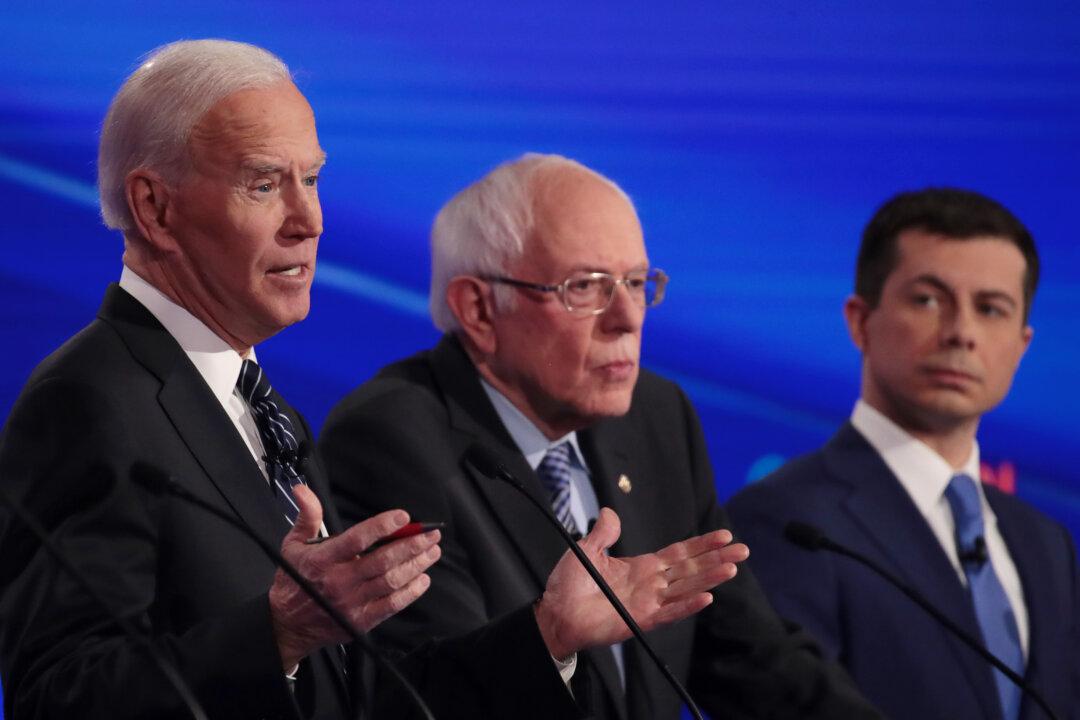The nation’s first caucuses were being held on Feb. 3 in Iowa, a highly sought-after state for Democratic presidential candidates looking to win the party’s nomination.
Iowa has an estimated 49 delegates, comprised of 41 pledged delegates and eight superdelegates. Voters go to the caucuses and fill out a card with their top choice and results are tallied and reported in what the Iowa Democratic Party refers to (pdf) as the “first alignment,” or “first expression of preference.”





